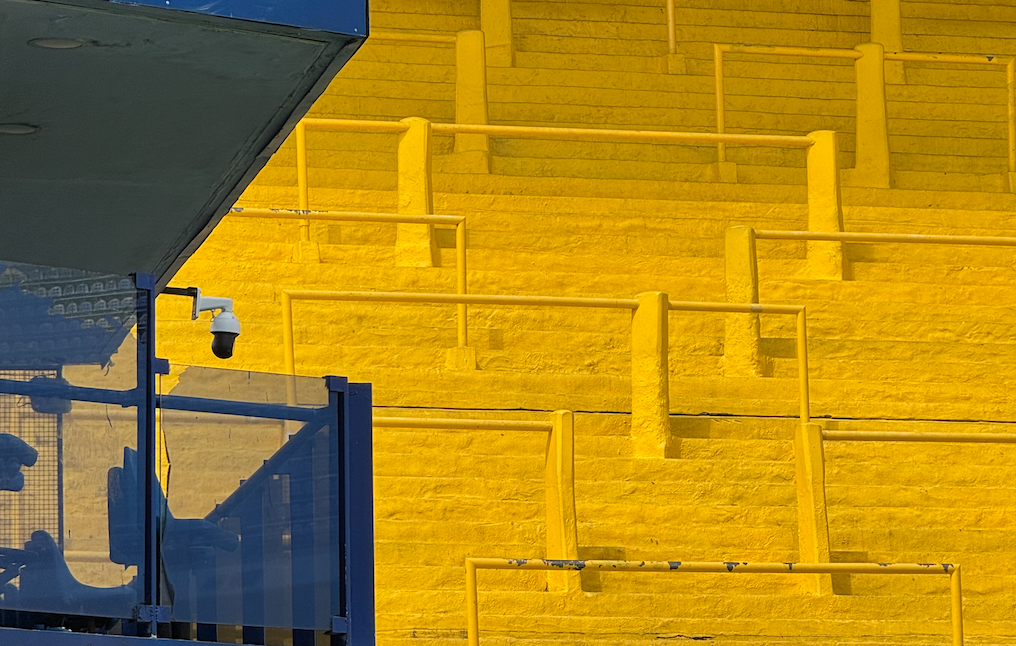Pakhtakor and prayer

Words: Donat Iskanderoff
Images: Donat Iskanderoff
It all started back in 1979 over the immense wheat fields of the Ukraine as the entire squad of Pakhtakor Tashkent died in one of the most tragic accidents in the history of the Soviet football.
Back then, my hometown club, Pakhtakor, was enjoying some success as it was battling for the top six spot of the Soviet top division.
The stakes were high, but it was never meant to be as the entire team was killed in a blink of an eye as their plane collided with another aircraft some 10.000 feet above the ground.
The team went but the dreams lived on. They were made reality after 1991, the day of Independence of the Republic of Uzbekistan. It’s then that Pakhtakor (literally “cotton-grower”), a forgotten gem of Soviet football, finally rose from the ashes.
With 15 Uzbekistan Super League titles and 13 Uzbekistan Cups to its name, the club, established in 1956 had finally claimed its dominance.
©Donat Isnkanderoff/ Terrace Edition. Pakhtakor Markaziy stadium.
Fast-forward to 2022 and here I am, trudging down the sun-lit expanses of Tashkent, the capital city of Uzbekistan.
No flights today for me – but a long and gruelling travel in a shared taxi. All the way down to Namangan, one of the biggest cities of Ferghana valley.
It’s there that Pakhtakor was set to face Navbahor Namangan.
Now, Navbahor is a different story. Established in 1978 this club enjoys a far better support in the Valley.
Sell-outs are fairly common at their 22.000 seater Markaziy stadium, a thing almost unthinkable in Tashkent. Trophy-wise, Navbahor is a stepbrother of Tottenham with only one Uzbek League title and three Uzbekistan cups to its name.
©Donat Isnkanderoff/ Terrace Edition. Mountain crossing between Tashkent and Namangan.
What they lack in trophies they make up in a fierce, at times primal support that can morph into a vulgar display of power and stones being hurled at the away fans. No tifos, no pyros – lots of chanting and lots of violence against the away fans, if provoked.
I knew it all along – but the breathtaking views of the Valley and the prospect of seeing two biggest teams cross their scimitars for the top spot, took all my cares away.
Four hours and thirty minutes later and I was in Namangan, the third largest and one of the most religious cities of Uzbekistan.
In the times of medieval Renaissance, the life was centred around the Islamic souks, or bazaars and things are no different now in the XXI century in Uzbekistan. So, a first stop for me was a Chor-Su bazaar in Namangan, where I bought tickets for the game (50.000 soums or around four USD) in one of the ticket selling sites.
With tickets sorted it was now the time for match-day scran. With all the grain farming all around the region you’d expect your food to be ‘noodle-rich’ and contain LOTS of meat.
©Donat Isnkanderoff/ Terrace Edition. Uzbek samosa.
So without further ado I went to a place called Chortaq for some samosa, which cost me around 80.000 sums or seven USD.
Next stop was some beers and I had to travel across the city to what resembled a pub, where I had some cold ones for a modest price of around 40.000 sums (three and a half USD).
The barrio I came to looked quite shady and run down.
Alcohol is not a hard to come by as Uzbekistan is a secular state. It’s just that they don’t sell it at the stadium.
Speaking of which, the time was drawing nigh and off to Namangan Central stadium I went. The atmosphere was building up slowly with lots of the locals darting to and fro, one hour and a half hours before kick-off. I bought the ticket for the main stand – no colours, no pins or badges to give me away.
©Donat Isnkanderoff/ Terrace Edition. Markaziy stadium. Navbahor Namangan.
There weren’t many away fans, save for a handful of Pakhtakor die-hards who came to the game against their better judgement and entered the stadium 15 minutes into the match. They did try to be vocal at times but the home side supporters hushed them easily.
The locals who turned up in large numbers, despite the high ticket price (by local standards) broke into disjoined chanting praising their team and denigrating Pakhtakor.
The game itself turned out to be a tedious affair with both teams parking the bus and being extra cautious. The home side, in the best South American traditions, were afraid to lose and did nothing to attack until the ‘Cotton-growers’ opened the scoreline.
Navbahor sprung back to action but it was a little too late – the ref blew the half-time whistle and some of the locals (who, by the way, turned out to be a nice bunch against their notoriety) went to pray.
They do it right in the stadium, facing the qibla of Mecca and ignoring all the rest of the world. Including their home side whose subs took to the pitch for half-time drills.
©Donat Isnkanderoff/ Terrace Edition. Navbahor Namangan supporters.
The home side, meanwhile, pushed on in the second half and found the coveted equaliser, sending the home crowds into raptures. All the police cordons, drones flying across the perimeter of the stadium and other rigorous security measures for this particular game were quickly forgotten.
People lived the moment, this is what the football exists for, after all.
The teams tied the match, 1-1 and the streets of Namangan overflowed as I went to the shared taxi spot to begin my long way home.
It was a beautiful game, despite its nature, and had been well worth the trouble.
©Donat Isnkanderoff/ Terrace Edition. Navbahor Namangan vs Pakhtakor FC.
©Donat Isnkanderoff/ Terrace Edition. Navbahor Namangan vs Pakhtakor FC.
©Donat Isknaderoff/ Terrace Edition. Namangan street scene.
You can find Donat on Twitter: @dxn_iskanderoff













